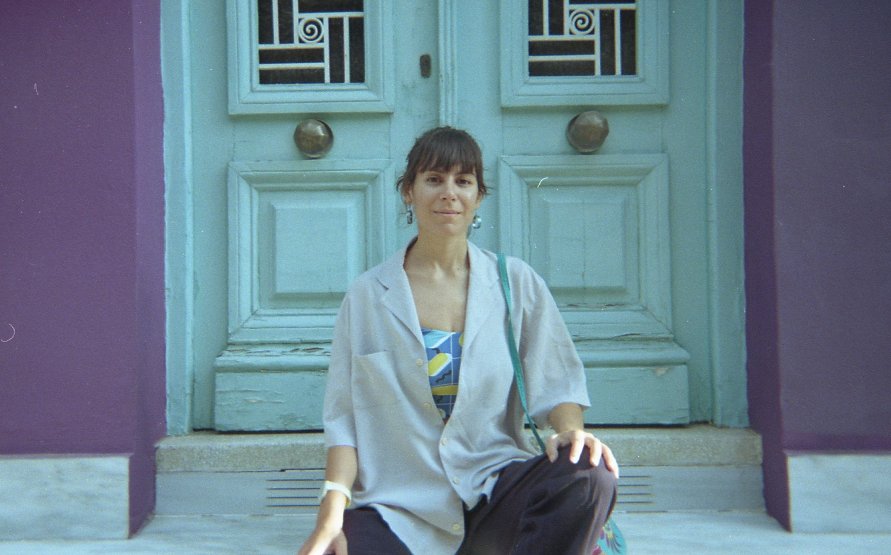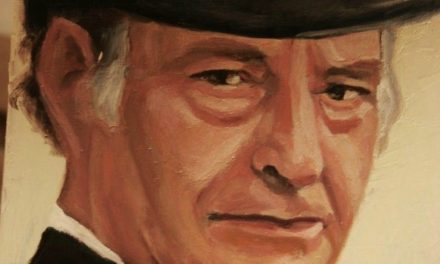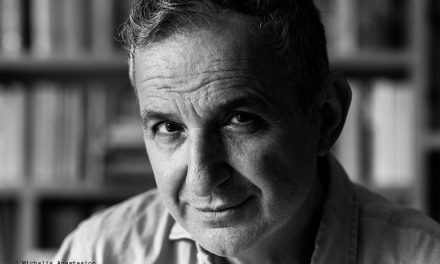Tonia Tzirita Zacharatou is a Greek poet based in Athens. She studied law and comparative literature. In 2020 her first poetry book, Second Youth (Δεύτερη νεότητα), won the “Thraca Editions Award”–which resulted in its publication. She has been awarded the “Anagnostis” Literary Prize and the “Jean Moreas” Literary Prize for New Author, and she was shortlisted for the State Prize for Young Writers. She has collaborated with various literary festivals and projects in Greece. Her writings have been translated in English and Portuguese and published in print and online magazines.
Your first writing venture Δεύτερη Νεότητα [Second Youth] (Thraca Editions, 2020) received quite favorable reviews while it was awarded the Anagnostis Literary Award for Newcomer in 2020. Tell us a few things about the book.
Second Youth is a book that comprises my first poems. In 2019 I began to systematically study Cavafy and found myself deeply concerned with the ways in which I approached poetry. I was first drawn to writing through reading, and I still believe that my poems are to some extent naughty reading notes on the fringes of my life. It is self-consciously a protolean book; a methodical attempt at writing with restrained curiosity. As I wrote, I noticed how my poems interacted and complemented each other; first a bit unconsciously, then quite purposefully, they mapped a time horizon. Youth as lived time – what is termed second youth despite the dangers of regular numerals that promise sequences not to be fulfilled– is not so much a biological category as a socially determined age.
I was concerned with the awkward and worn youth I noticed around me, in the people who are part of my life, and though they are defined by their vulnerability, they insist on creating intimate relationships in a world that is on the verge of falling apart. “I was still at the beginning of the road, / when they told me the end of it” writes Argyris Chionis in one of his first poems, and I think me and two of my dearest friends from adolescence had similar thoughts one night in Heraklion, when we first used the phrase ‘second youth’ to describe ourselves. In our case, it is not so much about a premature anxiety of wear – if such anxiety can indeed be premature – but about the affirmation of a youth that has never been self-evident.
Youth, time and its impact on the self and relations with the others, travel in all its dimensions, love, speech seem to be the main thematic axes around which the poems revolve. How are these themes dealt with in your poetry?
In Second Youth I took notice of the different aspects of a living experience and tried to capture what I still discovered fresh. I imagine it’s similar to someone finding a lump of clay that hasn’t dried yet and realizing they can still make marks on it. Through writing, things become fluid and you start to feel language like a toy that is left in your hands. I wanted – and this has not changed – to write by playing like children, that is, taking the game seriously and inventing rules that do not aim to limit joy, but to lead to even more exciting pleasures.
I was interested in finding the meeting point between my personal experience and the experiences of others and thus inventing a poetic subject as a mix of different traits, just as the notes of a chord sometimes give the impression that it is only one. I moved through second youth using various themes, such as travel or love, as signposts. Literature cultivates an intense attention to dealing with reality, so I gradually saw my subjects develop somewhere between observation, imagination and reflection. If I had to summarize the book in just one sentence, I would say that it thematizes a young woman’s attempt to exist with others, within her body, within the world, and of course within writing.
In her review of the book, literary critic Barbara Roussou points to a gender dimension which emerges through its relation with literature. How does this relation between gender and literature unfolds in your writings?
The realization that the poetic subject is equally determined by gender was pivotal for me. I was not interested in claiming a universal position nor in immersing into self-referentiality, but in defining the exact point from which I touched the world, and then write about it as best as I could. I reckon that resort to writing requires the undertaking of a responsibility and a clarity of vision capable of recognizing the hierarchies and tensions that permeate language. I perceive the poetic subject as embodied and gender differentiated, as my thinking is defined by feminist theory, and in this particular case, the politics of location by American lesbian poet Adrienne Rich, and the embodied positionality of Rosi Braidotti’s Deleuzian feminism.
I am interested in the world in its materiality, literature in its historicity, so while I was writing Second Youth I knew that its poetic voice is female, western, and to a significant extent privileged, as she tours art museums and pays homage to western modernism. At the same time, I knew that it is gender differentiated, so the poem “A speech for poets” eventually became “A speech for female poets”, since I had female poets in mind, even if I was told later that it falls short of universality. When you admit that what is called universal is in fact hegemonic, new possibilities open up, meaning is enriched and can lead you to unimaginable places.
While writing Second Youth I happened to be reading Elizabeth Barrett Browning’s verse novel Aurora Leigh, and I was surprised to find in this Victorian poet certain lines – which later became the motto of the book – that accurately defined the subjective view of the female artist I looked up to: “I stood upon the brink of twenty years, /And looked before and after as I stood /Woman and artist, -either incomplete/ Both credulous of completion”. I wanted to stand somewhere near her, and from there to start my symbolic exchanges with the world.
At your short paper published in the project “Revolt” by Vassilis Lambropoulos (C.P. Cavafy Modern Greek Chair in the Department of Classical Studies and Comparative Literature) of the University of Michigan) you wrote, “often, the urgent need to find new expressions of solidarity and dignity emerges. In searching for sensitive poetics of non-complacency, we seek forms of community and collective action”. Tell us more.
The poetic language has a plasticity, a transformative dynamic capable of bringing out the contradictions and complexity of reality. On the one hand, it disrupts our certainties, destabilizes banality, and reverses the predetermined boundaries in the distribution of experience. On the other hand, it is productive; it creates feelings and sensations; it highlights points of connection and contact. I am thinking, for example, of how the metaphorical language of poetry points to sameness through difference, and how Jacques Rancière proposes as the meeting point of aesthetics and politics the level of the aesthetic demarcation of what constitutes commonality in a community. This is why I reckon that when we draw images from our everyday lives, when we share narratives and seek to shape a kind of restless poetics, we are equally seeking to build communities.
The poetic capacity that allows me to speak does not separate me from society, but immerses me in it on the terms of an increasingly acute awareness that poetry has the potential to expand the limits of the possible and create a new perception of the ways in which the world is formed within us. Ιn her well-known essay “Poetry Is Not a Luxury”, Audre Lorde writes that poetry shapes the quality of the light in which we affirm our hopes and dreams and move toward survival and change, on a path that begins with language, becomes an idea and can end up in action. Lately I’ve been interested in a poetry that will bring out the textures and pulses of my connection to the world, so I write poems about a river that has dried up, about my childhood beach destroyed by tourism, or about the proper care of a plant.
Which are the main challenges new writers face nowadays in order to have their work published? What role do the social media play in the promotion of new literary voices?
When I think about the publishing and literary landscape, I can’t help but feel a sense of abandonment. It’s a tough landscape for new voices, as newcomer writers are usually required to either shoulder at least part of their publishing costs themselves or wait patiently until their fortune changes. Obviously, such a practice leads to exclusions, while at the same time impoverishes literary production, since the publication of several books is based solely on financial transaction. My case was an exception, as the year I completed the book, Thraca Editions had announced for the first time a prize for unpublished poetry collections, which in fact guaranteed publication with no cost for the author. Second Youth took the prize and some things went their way. In the search for a more welcoming space, social media is an alternative way, as it offers open platforms of expression.
Without overlooking the dimension of commercialization, it is clear to me that they facilitate many new and eccentric voices to share their work while remaining independent of the narrow horizons of the publishing world. Of course, often the composition of the media itself places greater emphasis on the construction of the poetic persona and reinforces specific forms of literary expression. In the case of poetry, these are mainly short poems intended to be read quickly and enable an emotional sharing or a moment of relaxation. There is beauty in this, as poetry is transformed in order to be found by people who need and search for it in their online lives, even if there is a risk of standardization. Personally, although their spectral world fascinates me, it also alienates me. I love the materiality of paper, live interaction, the encounters that activate all the senses, and I would like social media not to be a one-way street but just a parallel world.
How do Greek writers converse with world literature? Where does the local/national interweave with the global?
Generally speaking, I would say that the logic of small languages, minor literatures, center-periphery type dipoles, which we are constantly called to destabilize, is perpetuated. Personally, I am not particularly interested in entering into a discussion about Greek literature as an exportable product. If we stick to the institutional and commercial dimension of literary promotion, there is a risk of limiting the plurality of production to a single and homogeneous identity. I am more interested in the networks that are developed in the gaps and discontinuities of institutions, which promote other forms of aesthetic synergies, beyond the national one.
I observe such connections in small publishing ventures, such as Teflon and FRMK, in literary societies that are not limited by borders, but attempt to transcend them, in relationships built on the basis of aesthetic criteria which also touch upon gender, class or sexuality. In a globalized multilingual environment, we can cross linguistic sites, without having to leave our starting point; we always return, even if it is to a different point. We can write in Greek, but also globally. My dearest friend in poetry is the Portuguese poet Tatiana Faia. It is through poetry that we learn each other’s language, become friends and find ourselves in a constant creative exchange. It may seem insignificant, but personally I believe in these small gestures of solidarity, in companionship and in self-organized ventures; these move me and concern me first and foremost.
*Interview by Athina Rossoglou
TAGS: LITERATURE & BOOKS | READING GREECE














